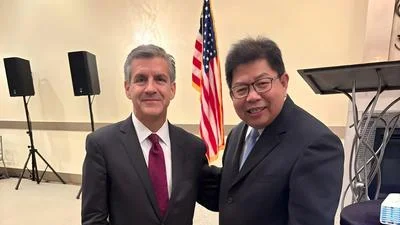Glen Ellyn School District 41's school superintendent has taken responsibility for giving the email addresses of school parents to a local political advocacy group.
After numerous inquiries from school board members and village trustees, Paul Gordon, District 41 school superintendent, acknowledged late Thursday that he released all community email addresses the district had to 41 Forward for Kids, which is supporting a referendum to borrow $24.2 million.
Gordon made the admission in an email to school board members, the DuPage Policy Journal has learned.

Paul Gordon
The group has used the list to send mass distribution "spam" emails to Glen Ellyn residents, encouraging them to support the referendum, which is scheduled for April 4. Early voting began March 20.
After receiving a spam email Wednesday, Glen Ellyn Village Trustee Peter Ladesic and other residents tried to discern how the group got his address.
Ladesic said he immediately asked two Glen Ellyn District 41 school board members, Kurt Buchholz and Stephanie Clark, whether the source of the emails was the district itself. Both had already sent out requests to Gordon and were waiting to hear back.
“I would be upset if I sent an email as a village board member to a village manager and didn't get a response overnight,” Ladesic said. “And now its almost halfway through the next day.”
In the absence of a response, rumors circulated surrounding the email release.
On the Facebook page for 41 Forward for Kids, a representative from the organization claimed the emails had come from a Freedom of Information Act (FOIA) request submitted to either the school district or the election commission.
“I think that's a mis-truth,” Ladesic said. “I don't think you can get private information like that from FOIA.”
According to the District 41 official school policy, email addresses are supposed to be exempt from FOIA.
The "Exemptions" section of its FOIA policy states that "private information, unless disclosure is required by another provision of FOIA, a state or federal law, or court order," is exempt.
"Private information is defined as unique identifiers, including a person’s social security number, driver’s license number, employee identification number, biometric identifiers, personal financial information, passwords or other access codes, medical records, home or personal telephone numbers, personal email addresses, home address and personal license plates," according to the policy.






 Alerts Sign-up
Alerts Sign-up